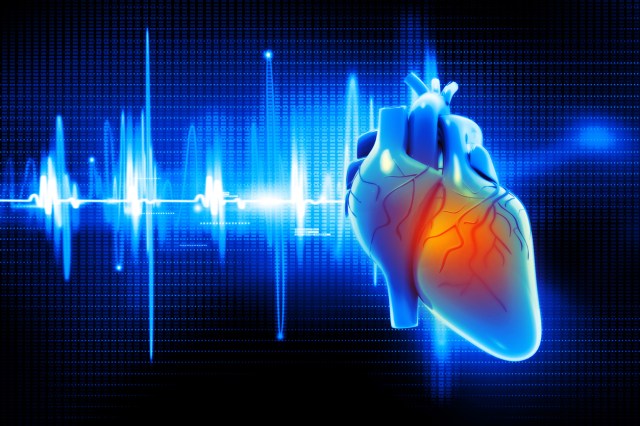
You’ve likely heard a lot about high cholesterol and high LDL levels and their connection to heart disease, but inflammation is another factor to consider. In simple terms, inflammation is one of your body’s natural defense mechanisms, helping to protect you from harmful substances. For example, when you get an insect bite, your body releases inflammatory chemicals that cause redness, swelling and sometimes itching—all signs that your body is working to heal.
The Role of Inflammation in Heart Health
While a certain level of inflammation is necessary, especially when responding to injuries or infections, chronic inflammation is harmful. Unlike the visible swelling from a bug bite, the inflammation that affects your heart is hidden but can still do significant damage. No definitive test for inflammation exists, but one key indicator is an elevated C-reactive protein (CRP) level in your blood. High CRP levels are often one of the earliest signs of potential heart problems.
Looking at CRP Levels
You can measure CRP levels through a blood test:
- Less than 1.0 mg/dL = low risk
- 1.0-3.0 mg/dL = average risk
- Above 3.0 mg/dL = high risk
Many doctors consider anything above 1.0 mg/Liter high.
How Diet Influences Inflammation
What you eat plays a huge role in either promoting or reducing inflammation. A poor diet, particularly one high in refined carbohydrates, sugar and unhealthy fats, can elevate inflammation. This ongoing low-grade inflammation is linked to several chronic health issues, including diabetes, heart disease and even cancer.
For instance, consuming a single high-carbohydrate meal can cause an immediate spike in inflammation.1,2 Over time, a diet consistently high in refined carbohydrates can lead to persistently high levels of inflammation.3,4 This is where a low-carb diet may make a significant difference.
The Low-Carb Diet and Inflammation
Research shows that a low-carb diet can reduce inflammation. Studies have found that CRP levels drop by about one-third in people following Atkins’ low-carb diet.5,6 If you have higher inflammation levels, the reduction can be even more significant compared to a low-fat diet.7 A study showed that people with Metabolic Syndrome on a very low-carb diet had a more significant decrease in inflammatory markers than people on a low-fat diet.8 This suggests that refined carbohydrates, more than fats, contribute to inflammation, especially when consumed in large amounts.
Omega-3 Fats: An Additional Tool Against Inflammation
In addition to reducing carbs, incorporating omega-3 fatty acids into your diet can help combat inflammation. Omega-3s, found in fatty fish like salmon and supplements containing EPA and DHA, have been shown to have powerful anti-inflammatory effects.9 These fats help reduce inflammation and offer wide-ranging benefits for heart health, including lowering the risk of heart disease and diabetes.10
Reducing inflammation is key to protecting your heart; a low-carb diet can help. By lowering your intake of carbohydrates, particularly refined ones, and incorporating foods like omega-3-rich fish, you can take proactive steps to improve your heart health.
Eating to Mitigate Inflammation
You may be able to fortify your body against the oxidative stress that can trigger inflammation with these foods:
- Fiber-rich, low-glycemic vegetables and fruits rich in antioxidants
- Whole food sources of complex carbohydrates and grains
- Protein, including eggs, fatty fish such as salmon, legumes, nuts and seeds
- Healthy fats, including olive oil and avocado
Low-Carb Meal Plan to Help Combat Inflammation
- Start the day by sipping a cup or two of green tea. This beverage boasts anti-inflammatory properties thanks to catechins, an antioxidant in tea leaves. The most potent catechin, epigallocatechin gallate, or EGCG, is found in green tea.
- Eggs provide a protein-packed breakfast (and even taste great for lunch or dinner) and have been shown to help increase HDL “good” cholesterol when carbs are restricted. The antioxidant lutein (found in the yolk) helps combat inflammation.
- Chia seeds are a plant-based protein that is also a source of fiber, calcium and omega-3s. Toss some chia seeds in your salad, enjoy them in overnight oats, or try this Keto Chocolate and Coconut Chia recipe.
- Cold-water fish like salmon and herring are high in omega-3 fats, which can also help reduce inflammation. Top Greek Spinach Salad with grilled salmon and finish with a simple vinaigrette made with heart-healthy olive oil and red wine vinegar.
- Add some oomph to your snacks by dipping veggies in Spiced Garlic Spread. Garlic is known for producing organosulfur compounds that help prevent inflammation.
- Go with a plant-based meal, like Baked Tofu with Red Bell Pepper, Broccoli and Peanut Sauce. Vibrant red bell pepper is high in vitamin C and bioflavonoids. Cruciferous broccoli is high in the sulfur-containing compound glucosinolate and vitamins C and K, which can help control inflammation.
- End your day with a (tiny) sweet treat, such as Avocado Chocolate Mousse.
